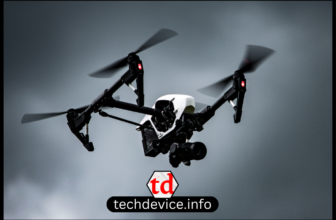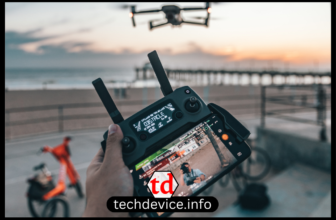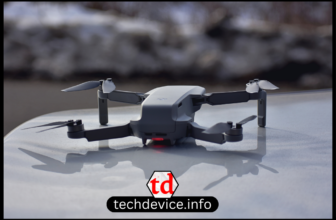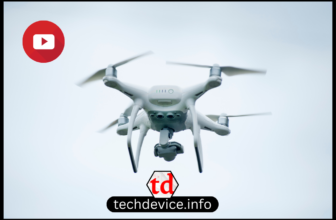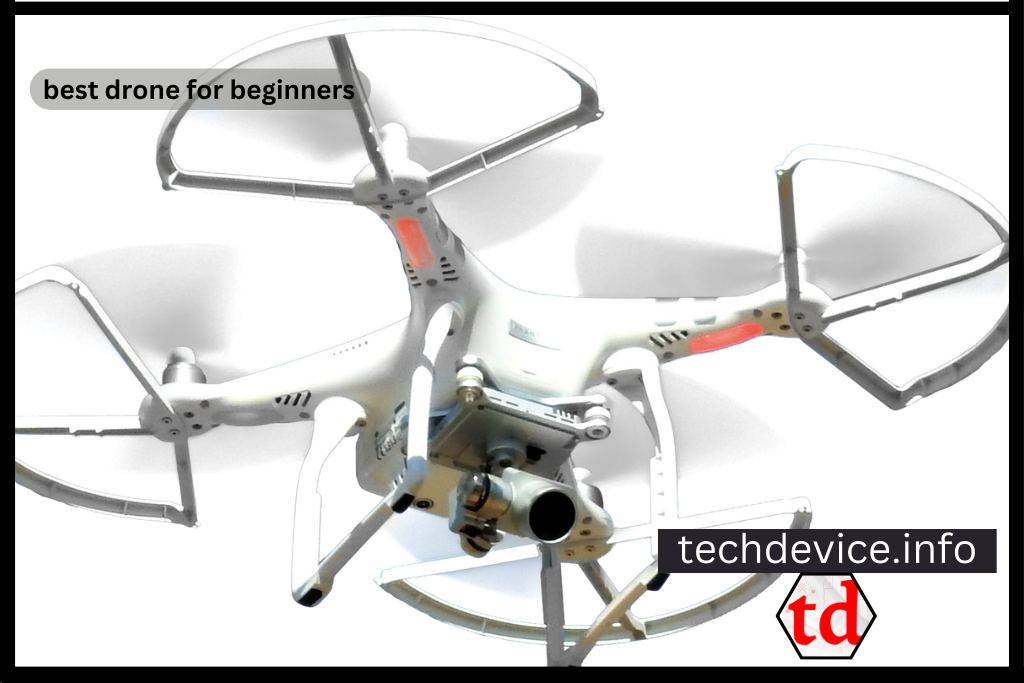
Need help to buy the best drone cameras for beginners? Here are the top suggestions for your guide before selecting the best one drone in 2023.
The Best Drone Cameras for Beginners in 2023: Elevating Your Aerial Photography Journey Through Drone
As we step into 2023, the world of aerial photography continues to captivate enthusiasts, adventurers, and content creators alike. Drones have become more accessible, powerful, and user-friendly, making it easier for beginners to venture into this thrilling hobby. However, with many drone options available, choosing the right one for beginners can take time and effort. This article aims to guide aspiring drone pilots by exploring the best drone cameras for beginners in 2023.
Top Five Best Drone Cameras for Beginners
1- DJI Mini 3 (The best drone camera for most beginners)
DJI’s latest compact drone is the best edition for beginners. Like both Mini predecessors, the DJI Mini 3 is a lightweight flying machine with a small folding body, intuitive controls, and proper automated filming modes. Like those same predecessors, it still misses out on collision avoidance – something you only get by spending more on the Pro version (below). But it proved every bit the quality drone in testing: we found it forgiving to pilot using the standard controller, which is the same as the one supplied with the Mini 2. Drift was only an issue in the windiest conditions.
While it lacks the Log profiles of DJI’s premium drones, we found that its 1/1.3-inch sensor – more significant than the DJI Mini 2’s – captured sharp 4k/30p footage that was excellent overall. What also set it apart was the ability to rotate its 12MP sensor to portrait for shooting social content.
Specifications
- Best for: Most beginner flyers
- Camera resolution: 12MP
- Range: 10km
- Weight: 248g
- Battery size: 2453mAh
- Controller: Yes, available
Pros
- Great image quality
- Small, lightweight build
Cons
- No collision avoidance
- No subject tracking
If you already have a DJI Mini 2, the case for upgrading is less compelling. But this is best if you’re shopping for a well-built, feature-packed beginner drone.
2- Ryze Tello (Best Drone Cameras for Beginners under Budget)
Designed in partnership with DJI, Ryze’s Tello is an affordable, compact, and lightweight drone ideal for mastering the basics. It’s controllable via your smartphone, running the Tello app and Wi-Fi. However, you can also use a Bluetooth gaming controller, albeit at a shorter range. We appreciate that it’s proven to be a responsive and lively flier during our tests. That makes it an excellent twin-stick quadcopter flying instructor. Stability sensors prevent drifting when it’s supposed to be motionless, and the 13-minute battery life is exemplary.
It’s not all positive. At the same time, the slightest breeze will send the drone drifting off in whatever direction it’s blowing. The 720p video camera isn’t up to much either. With no local storage, it sends all footage and photos directly to your phone, resulting in choppy video if and when the Wi-Fi connection dips in and out.
Specifications
- Best for: Budget-conscious flyers
- Camera resolution: 5MP
- Range: 100m
- Weight: 80g
- Battery size: 1100mAh
- Controller: iOS/Android phone and Tello app
Pros
- Responsive controls
- Tiny and lightweight
- Decent battery life
Cons
- Doesn’t fly well in the wind
- No controller included
Those caveats aside, the Tello is a great starter drone that does simple things well and feels better made than other budget models. It’s the obvious pick for the best budget beginner drone category.
3- DJI Mini 3 Pro (The best premium beginner drone)
It’s the most expensive model on this list, but the Mini 3 Pro is also the best drone for beginners with large budgets. It’s a big step up from the DJI Mini 2 in almost every way. However, the most helpful feature for novice fliers is its tri-directional obstacle avoidance sensors. These protect you when flying around tree branches and unlock numerous automated modes like FocusTrack, which we found beneficial during testing.
The other significant upgrade from the Mini 2 is the Mini 3 Pro’s camera. During our daylight tests, the drone’s 12.1MP 1/1.3-inch sensor produced excellent image quality, with little noise up to its maximum ISO 6400 setting. The bright f/1.7 lens and dual native ISO tech mean low-light performance is vital for a small drone, if not as good as larger models like the DJI Air 2S.
Specifications
- Best for Flyers with deep pocket
- camera resolution: 12.1MP
- Range: 8km-12km
- Weight: 249g
- Battery size: 2453 mAh
- Controller: Yes, Available
Pros
- Impressive low-light performance
- Obstacle avoidance sensors
- Useful automated flight modes
Cons
- Price for a compact drone
If you can afford it, the Mini 3 Pro is a good choice for novices because it can shoot in portrait without cropping and has the new DJI RC controller, which makes flying the drone easy.
4- Autel Evo Nano+ (The best DJI drone alternative for beginners)
The Autel Evo Nano+ is taking on DJI’s Mini 3 Pro in the sub-250g drone category. That, in itself, is no easy undertaking, with the latter being so nearly perfect. To its credit, the Evo Nano+ is an impressive beginner drone in its own right. Its sensor outperformed our current top pick, the DJI Mini 3, in low-light tests. It is on par when dealing with windy conditions. That makes it an easy recommendation for us, especially when you love capturing sunsets and nighttime cityscapes – not to mention if you need a high-performance drone that meets Europe’s critical weight limits.
Specifications
- Best for: Low-light shooters
- Camera resolution: 12.5 MPR
- range: 16.8km
- Weight: 249g
- Battery size: 2250 mAh
- Controller: Yes, available
Pros
- Extensive sensor and bright lens
- Collision detection
- Stunning video and stills
Cons
- Fragile
- Still missing subject-tracking
Admittedly, the Mini 3 Pro has the overall edge here. However, the Evo Nano+ should see refinements over time, thanks to Autel’s adding new features and making improvements via firmware updates. And, if you’re looking for an ace alternative to DJI’s offerings, this one should be at the top of your list.
5- BetaFPV Cetus X Drone (The Best FPV Drone for Beginners)
If you want to try flying an FPV drone, the Beta FPV Cetus X Kit is a top choice. As a package, it comes with everything you need for a first-person flight, including a transmitter and a basic set of goggles. More potent than models like the Cetus Pro, we found that multiple flight modes and speed settings make it an FPV drone you can grow with. Crashes are also inevitable, and while the frame is built to withstand impacts, it did crack in our tests. Still, provided you have the stomach to stick it out without succumbing to motion sickness, the Cetus X will reward you with an immersive flying experience.
We did find the video feed prone to break-up and interference, and while a built-in DVR can record flight feeds, this isn’t a drone for stills photography. Battery life was also a disappointment, rated at just five minutes. But with enough power to perform simple freestyle tricks and everything in the box to get airborne, this is our favorite FPV kit for first-timers.
Specifications
- Best for: First-time FPV flyers
- Camera resolution: N/A
- range: 600m
- Weight: 55g
- Battery size: 450 mAh
- Controller: Optional
Pros
- Complete FPV starter kit
- Multiple flight modes
Cons
- Requires plenty of patience.
- Short battery life
Conclusion
While these best drone cameras for beginners are suited due to their ease of use and affordable price, they offer some of the best drone photography features on the market. So, choose wisely; before long, you’ll capture stunning shots from unique aerial perspectives.
For more info visit www.techdevice.info


